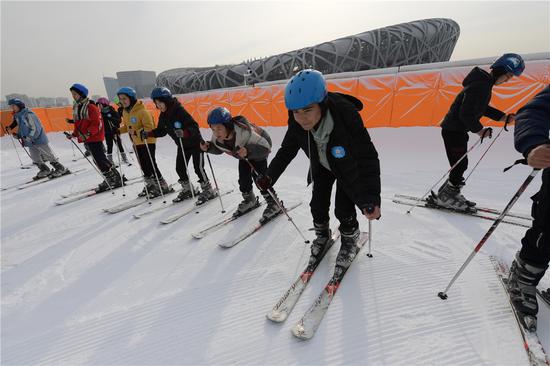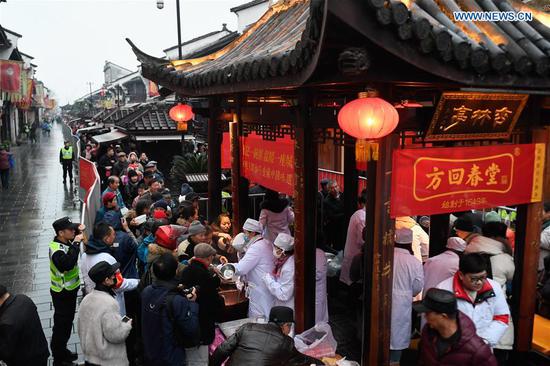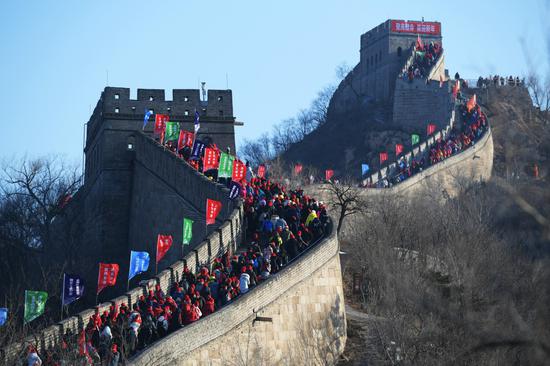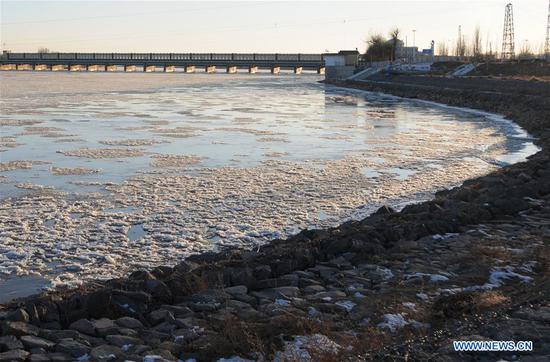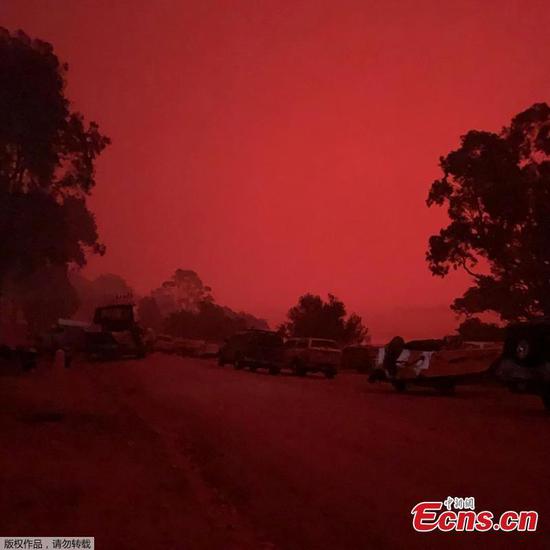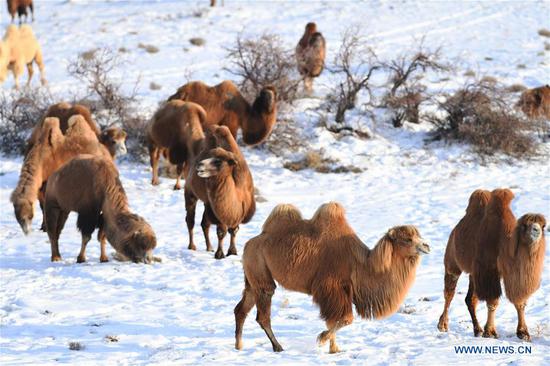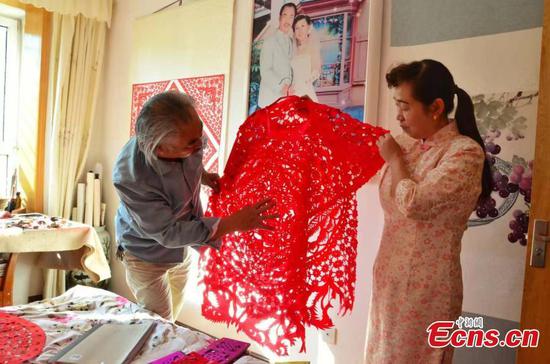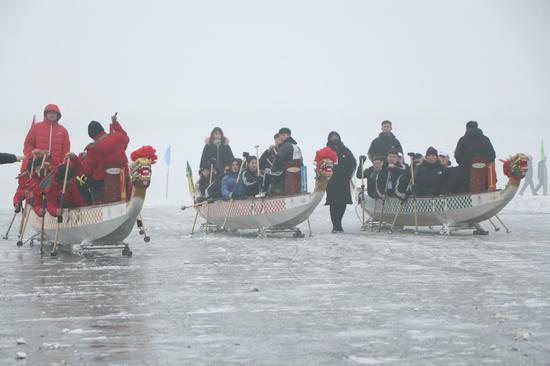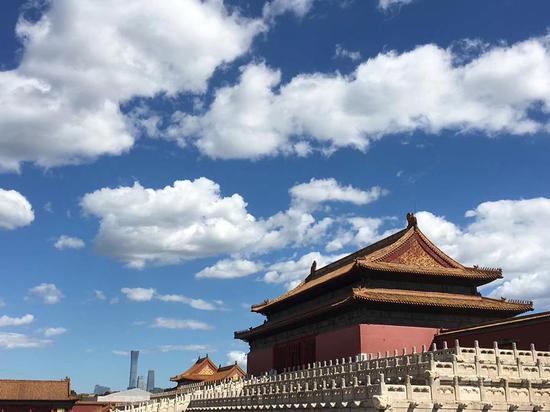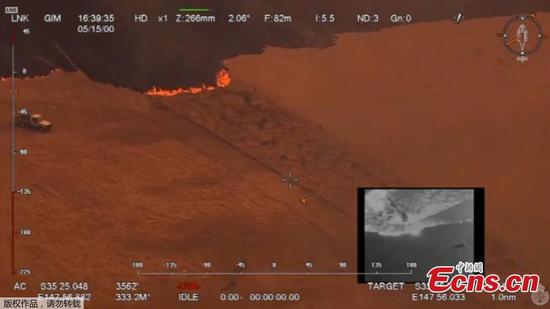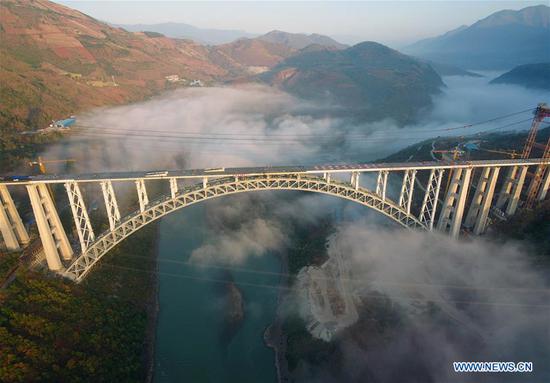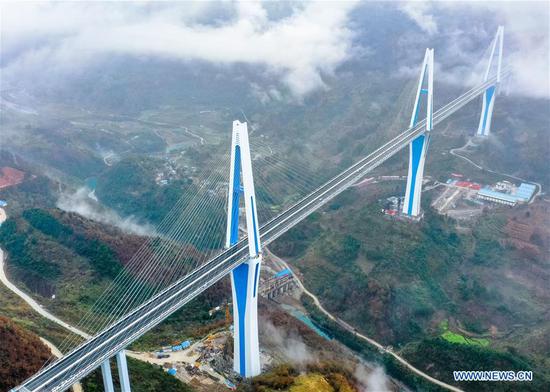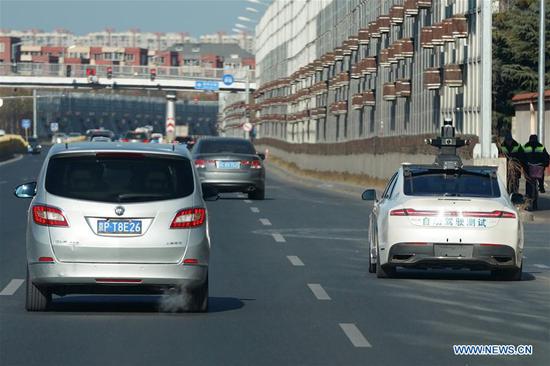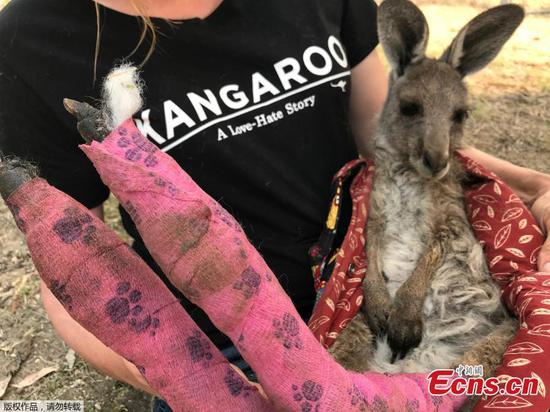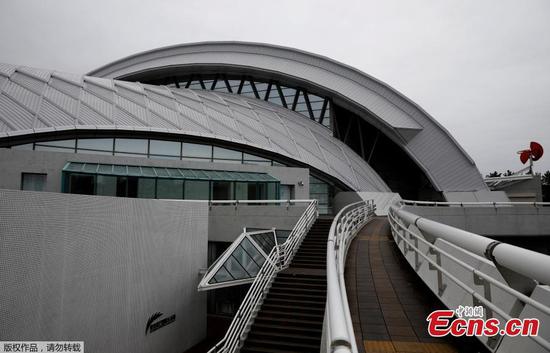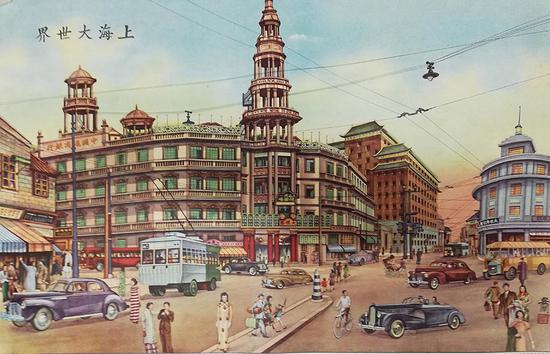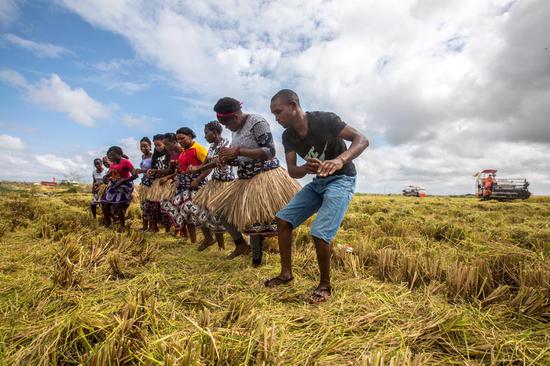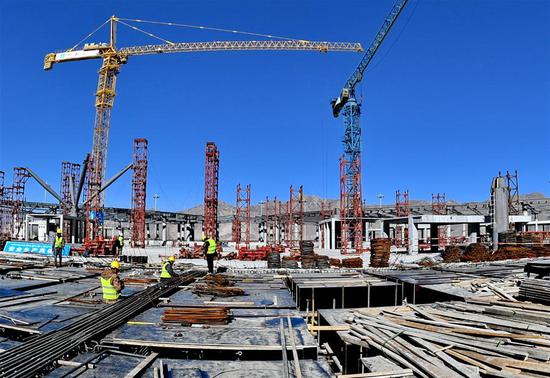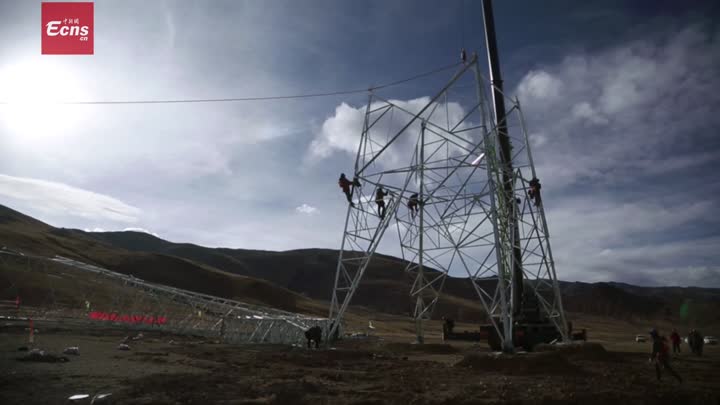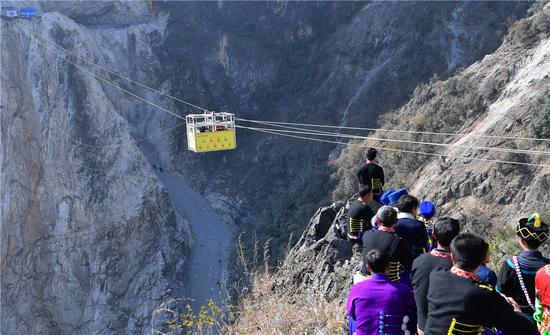
Villagers dressed in Yi ethnic clothes wait for a cable car to reach their far-flung village of Abuluoha in Butuo county, Sichuan province, on Tuesday, when the cableway was put into operation. (Photo: For China Daily/He Haiyang)
Qiesha Secong, a 30-year-old resident of Abuluoha village in Sichuan province, sold his family's only horse early last month.
The pony, which he bought four years ago, was valuable to the Yi man, whose home village is in Wuyi township, Butuo county in Sichuan's Liangshan Yi autonomous prefecture.
"My village had no access to any road and I had to trek with the pony along a mountain path to carry home seeds, fertilizer, salt and rice. The pony is not tall but can carry more than 200 kilograms," he said.
He parted with his precious horse because a 3.8-kilometer road is expected to open in April and he will be able to ride a much faster motorcycle.
Abuluoha, which means a valley surrounded by rolling mountains and a less-traveled place in the language of the Yi ethnic group, is located in the deep valley of the Jinsha River and is surrounded by mountains on three sides and cliffs on the other.
Before the construction of the road linking the village to the outside started in June 2018, Abuluoha was believed to be the last village without a road in the country, said Song Ming, an information officer with the Liangshan prefecture government.
Villagers used to spend more than three hours traveling from their homes in a valley to the road being built, where they could go to the county seat through another village.









